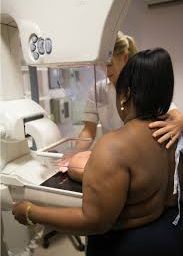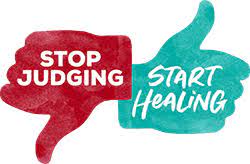
Pregnancy Diet Tips: Foods to Include and Avoid for a Healthy Baby
Embarking on the journey of pregnancy is an awe-inspiring experience, and ensuring a healthy diet is paramount for the health and vitality of both the mother and the growing baby. Navigating the nuances of nutrition during this transformative phase can set the stage for a vibrant and healthy pregnancy.

Bringing a new life into the world is a remarkable journey that requires careful nurturing and attention to the well-being of both the mother and the baby. A healthy pregnancy lays the foundation for a strong start to life for your little one. To help you navigate this beautiful phase with confidence, we have compiled healthy diet and lifestyle tips to support your journey towards a healthy pregnancy.
1. Embrace a Wholesome and Healthy Diet
A well-balanced diet is the cornerstone of a healthy pregnancy. It provides the necessary nutrients for both the mother and the developing baby. Focus on incorporating a colorful array of fresh fruits, vegetables, whole grains, lean proteins, and healthy fats into your daily meals. As part of a healthy diet, these nutrient-rich foods will provide the essential vitamins and minerals necessary for your baby’s growth and development.
2. Prioritize Folic Acid
Even before conception, it’s crucial to start taking folic acid supplements. Folic acid is part of a healthy diet and is crucial in preventing neural tube defects in the baby’s brain and spine during early development. It is particularly essential during the first trimester when the neural tube is forming. Check with your healthcare provider for the recommended dosage.
3. Stay Hydrated & Heathy Diet

Staying hydrated is vital for both you and your baby. Aim to drink at least 8-10 glasses of water daily and opt for water over sugary beverages. Proper hydration supports healthy circulation and helps in nutrient transportation to your baby, which are all vital during pregnancy. It helps prevent dehydration, which can cause complications for both the mother and the baby.
4. Exercise Regularly
In addition to a healthy diet, engaging in moderate exercise during pregnancy can have numerous benefits, including improved mood, reduced discomfort, better sleep and overall well-being during pregnancy. Low-impact activities such as walking, swimming, and prenatal yoga are excellent choices. It also prepares the body for labor and delivery and can aid in postpartum recovery. Always consult your healthcare provider before starting any exercise routine.
5. Avoid Harmful Substances
Protect your baby’s health by steering clear of alcohol, tobacco, and illicit drugs throughout your pregnancy. These substances can harm the baby’s growth and increase the risk of birth defects.
6. Moderate Caffeine Intake
While a little pick-me-up of caffeine may be acceptable, it’s essential to limit its intake. Aim for around 200-300 mg of caffeine per day (approximately 1-2 cups of coffee) to avoid potential risks. Limiting caffeine intake helps reduce the risk of miscarriage and low birth weight. It’s essential to consume caffeine in moderation to avoid potential adverse effects on the baby.
7. Manage Weight Gain

Pregnancy naturally involves weight gain, but it’s essential to gain weight steadily and within the recommended range. Follow your healthcare provider’s guidelines and keep track of your weight gain to avoid complications. Maintain a healthy diet at all times.
8. Prioritize Rest and Sleep
Your body is working hard to nurture a new life, so ensure you get enough rest and sleep. Listen to your body’s signals and give it the time it needs to recharge.
9. Avoid Raw or Undercooked Foods
To protect yourself and your baby from foodborne illnesses, practice a healthy diet by avoiding raw or undercooked meats, eggs, and seafood. Also, steer clear of unpasteurized dairy products and soft cheeses.
10. Manage Stress

Pregnancy can be an emotionally overwhelming time. Engage in relaxation techniques, meditation, or prenatal yoga to manage stress effectively. High-stress levels can have adverse effects on both you and your baby.
11. Attend Prenatal Check-ups
Regular prenatal check-ups are crucial for monitoring your baby’s development and addressing any concerns promptly. Follow your healthcare provider’s recommendations for optimal care.
12. Prenatal Vitamins
In addition to a healthy diet, take prenatal vitamins as recommended by your healthcare provider. These supplements ensure that you and your baby receive essential nutrients, especially during times when your diet may fall short.
13. Omega-3 Fatty Acids and Healthy Diet
Omega-3 fatty acids, particularly DHA (docosahexaenoic acid), play a crucial role in the development of your baby’s brain and eyes. Include sources of omega-3s like fatty fish (e.g., salmon, mackerel) or plant-based options (e.g., chia seeds, flaxseeds) in your diet.
14. Say No to Risky Activities

Avoid activities that pose a risk of falling or injury, such as horseback riding, skiing, or contact sports. Also, be cautious when using stairs or walking on slippery surfaces.
15. Body Posture and Comfort
As your baby bump grows, pay attention to your body posture and ergonomics. Use supportive pillows while sleeping, and practice good body mechanics to avoid strain on your back and joints.
16. Bond with Your Baby
Take time to bond with your baby even before birth. Talking, reading, or playing music to your belly can create a connection and a soothing environment for your little one.
17. Pelvic Floor Exercises
Strengthening your pelvic floor muscles through Kegel exercises can help prepare your body for labor and improve postpartum recovery.
18. Proper Lifting Techniques
If you need to lift objects, remember to use proper lifting techniques. Bend your knees, not your back, and avoid lifting heavy loads.
19. Clothing and Footwear
Wear comfortable, loose-fitting clothing made from breathable fabrics to help regulate body temperature. Invest in supportive, comfortable footwear to reduce strain on your feet and ankles.
20. Educate Yourself
Knowledge is empowering. Attend childbirth and parenting classes to learn about labor, delivery, and newborn care. Understanding the process can alleviate anxiety and boost your confidence.
21. Emotional Well-being

Pregnancy can trigger a range of emotions. Reach out to friends, family, or a support group to share your feelings and experiences. Seeking counseling or therapy if needed is also beneficial.
22. Prepare for the Postpartum Period
Plan for the postpartum period by arranging help from family or friends, creating a peaceful space for recovery, and having necessary supplies ready.
23. Monitor Your Baby’s Movements
Pay attention to your baby’s movements throughout the day. If you notice any significant changes or reduced activity, inform your healthcare provider immediately.
24. Monitor Blood Pressure

Regularly monitor your blood pressure and consume healthy diet throughout your pregnancy. High blood pressure can lead to complications such as preeclampsia, which requires immediate medical attention.
25. Avoid Hot Baths and Saunas
Avoid soaking in hot baths, using saunas, or engaging in activities that cause your body temperature to rise significantly. Elevated body temperature can be harmful to the developing baby.
26. Dental Health
Maintain good dental hygiene and schedule regular dental check-ups. Pregnancy hormones can affect your gums, increasing the risk of gum disease. Proper oral care and healthy diet are essential for your overall health and the health of your baby.
27. Sun Protection
If you spend time outdoors, protect your skin from harmful UV rays with sunscreen, a wide-brimmed hat, and appropriate clothing. Pregnancy can make your skin more sensitive to the sun.
28. Prepare for Breastfeeding

If you plan to breastfeed, attend breastfeeding classes and seek guidance from a lactation consultant. Breastfeeding offers numerous benefits to both you and your baby.
29. Birth Plan
Consider creating a birth plan that outlines your preferences for labor and delivery. Discuss it with your healthcare provider and your birthing team to ensure your wishes are respected as much as possible.
30. Limit Exposure to Harmful Chemicals
Be mindful of exposure to harmful chemicals, such as certain cleaning products, pesticides, and strong fumes. Opt for natural and non-toxic alternatives whenever possible.
31. Practice Safe Sex
If your healthcare provider advises against sexual activity during pregnancy due to specific medical concerns, follow their recommendations. Otherwise, engage in safe sex practices to protect both you and your baby.
32. Attend Parenting Classes
In addition to childbirth classes, consider attending parenting classes to learn about infant care, safe sleep practices, and ways to support your baby’s development.
33. Listen to Your Body
Pregnancy can bring about various discomforts and changes in your body. Listen to your body’s cues, maintain a healthy diet and if you experience any concerning symptoms, contact your healthcare provider promptly.
34. Prepare for the Hospital Stay

Pack a hospital bag with essentials such as comfortable clothes, toiletries, and items for the baby. Familiarize yourself with the hospital or birthing center’s procedures to feel more at ease during your stay.
35. Communicate with Your Partner
Keep communication lines open with your partner throughout the pregnancy. Share your feelings, concerns, and excitement, as this journey involves both of you.
As you eagerly anticipate the arrival of your little one, focus on creating cherished memories and fostering a strong bond with your baby. With the support of your healthcare provider, loved ones, and the knowledge you’ve gained, you’re well-equipped to navigate the beautiful path of pregnancy and embark on the miraculous adventure of parenthood. Embrace the joys and challenges with open arms, for every moment is a precious gift on this remarkable journey of nurturing a new life.
Every pregnancy is a unique and beautiful adventure. The journey of pregnancy is a special and transformative experience. By prioritizing your health and well-being, you are also nurturing the growth and development of your precious little one. Embrace a healthy diet, stay active, and surround yourself with support and care. Seek support from healthcare professionals, your loved ones, and other expectant mothers, as they can offer valuable insights and encouragement during this incredible chapter of your life. Remember, every pregnancy is unique, so always consult your healthcare provider for personalized guidance. Together, let’s embark on this journey of a lifetime, embracing the joys and challenges of motherhood with love and determination.
Disclaimer: The information provided in this content is for general informational purposes only. It is not intended as medical or healthcare advice, diagnosis, or treatment. Always seek the advice of a qualified healthcare professional with any questions you may have regarding a medical condition or healthcare decisions.
















